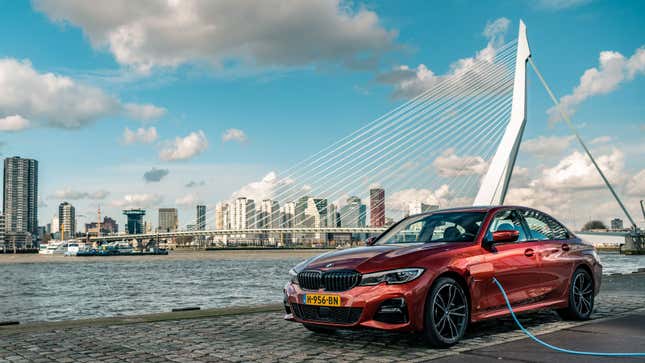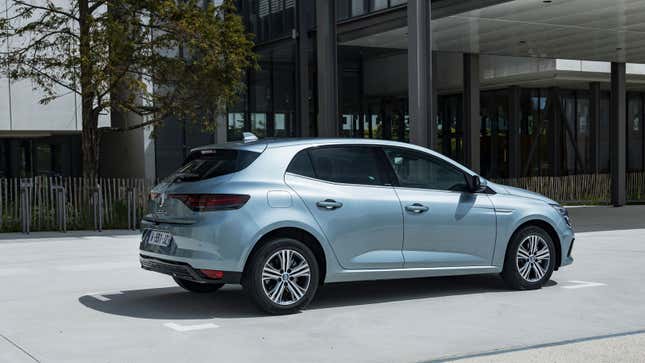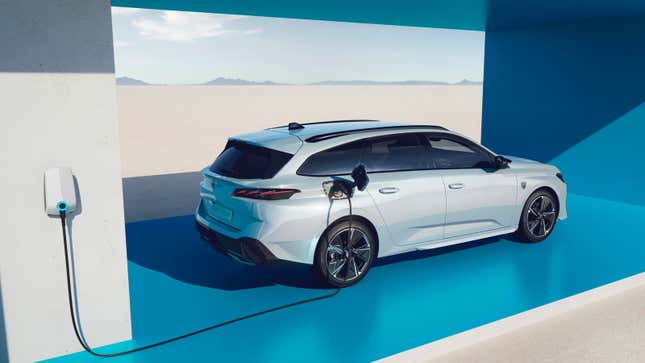
If you’re in the market for a new car and feel like you’d like to dip your toe into electrification then you might have considered a plug-in hybrid at one time or another. These cars combine the simplicity of a gas-powered car with the fuel savings of an EV, it’s a win-win, right? Well, that might not actually be the case, as a new report in Europe suggests plug-ins might not be the climate fix we once thought.
On the surface, many plug-in hybrids promise mile after mile of emission-free driving thanks to their onboard batteries and electric motors. Then, once the electricity runs out, they switch over to an efficient gas motor to keep you going on longer journeys. Cars like the Kia Sorento and BMW 300e previously convinced me that such a setup could be perfect.
But, a new report out of Europe suggests that they might not be the miracle midpoint between gas cars and EVs once thought. In fact, these kinds of cars could pollute “more than claimed” in city centers and on commutes.

According to Transport & Environment, testing of three plug-in hybrid models widely available in Europe found that they pollute significantly more than claimed on city and commuter routes. It followed a similar study from the same site two years ago that found the same was true of PHEVs running longer routes as well. The site reports:
“Three recent PHEV models, a BMW 3 Series, Peugeot 308 and Renault Megane, emitted more CO2 than advertised when tested on the road even when starting with a full battery. The BMW polluted three times its official rating when driven on a typical commuter route, according to the tests by Graz University of Technology, commissioned by T&E.
“The Peugeot 308 and Renault Megane plug-in hybrids performed better but still polluted 20% and 70% more than claimed, respectively, despite the relatively short round-trip distance covered (55km).”
In a commuter setting, the BMW tested was rated as producing 36 grams of CO2 per km (I refuse to convert this to ounces per foot, or whatever the American equivalent would be), but actually produced 112 grams in testing. The Renault was rated at 30 g/km but produced 50 g/km and the Peugeot was the closest to its rating with 33 g/km emitted compared to 27 g/km.
Things were equally alarming when it came to measuring the electric range of the three models tested. According to T&E, only the Renault managed to hit its advertised all-electric range of 30 miles, while the BMW covered 74 percent of its 22 miles of electric range. The Peugeot fared the worst, reaching just over half of its supposed 37-mile range.

Obviously, you can’t take the poor results for these three cars and say this means that every plug-in hybrid model on sale today is worse than advertised. But, for the three cars tested to consistently perform below their ratings is concerning, especially as the whole attraction of buying a PHEV is to cut down your carbon emissions.
So what does a study like this actually mean? Well, in the case of the three cars tested it means that automakers need to devise better means of calculating their emissions and electrical ranges if they want to be honest with consumers.
According to T&E, it also means that such vehicles are being taxed incorrectly in Europe. The site claims that the emissions of the models tested were so unacceptable that these cars should be taxed based on their “actual pollution” and no longer be subsidies across the European Union.
As it stands, PHEV buyers may qualify for up to €6,750 towards their purchase in certain markets.